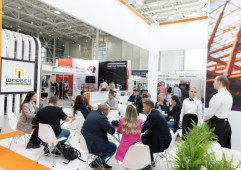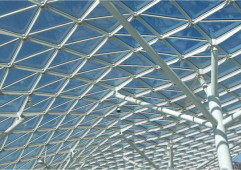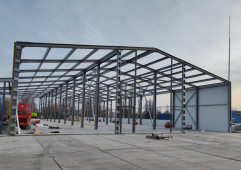Nanofiltration Membranes to Treat Industrial Wastewater from Heavy Metals
Scientists from the National Research Technological University NUST MISiS, a Metal-Expo regular exhibitor, together with Indian colleagues from Jain University and Sri Dharmasthala Manjunatheshwara College presented innovative membranes for the complete removal of heavy metals from industrial wastewater. The special nanostructure of zinc-modified aluminum oxide made it possible to remove arsenic and lead from water with an efficiency of 87% and 98%, respectively. The results of the work were published in the Chemosphere journal.
Industrialization is the main cause of water pollution due to the ingress of industrial waste. In particular, heavy metals — arsenic, lead and cadmium — can cause metabolic disorders and multiple critical effects to the body, which make them extremely toxic to the environment.
One of the most promising methods of purification and removal of heavy metal ions from water is the “Membrane technology”. It acts as an effective barrier (“filter”) and is relatively easy to manufacture. At the same time, it has some serious limitations such as high energy consumption, short membrane life, low productivity and selectivity.
The challenge for scientists is to make the membrane technology a more versatile and commercially available method of wastewater purification. An international team of researchers from Russia and India proposed a solution to the problem by synthesizing a new type of membranes — especially porous nanoparticles of zinc-doped aluminium oxide.
“The nanoparticles that we obtained by solution combustion method have a very large surface area (261.44 m2/g) at a size of 50 nanometers. Cross-sectional images of nanoparticles obtained using scanning electron microscopy showed the finger-like morphology and porous nature of the membranes,” said Vignesh Nayak, co-author of the work, a postdoc at NUST MISIS.
According to scientists, the synthesized membranes showed increased hydrophilicity (wettability), surface charge and “super porosity”, which made it possible to remove arsenic and lead from an aqueous solution with an efficiency of 87% and 98%, respectively.
The second important advantage of the membranes obtained is antifouling properties. It means that the material is resistant to fouling by aquatic microorganisms, which disable devices that have been in aquatic environments for a long time.
The antifouling study conducted by developers at various pressures with a feed solution containing bovine serum albumin showed 98.4% recovery and reusability of membranes for up to three continuous cycles.
In the future, the membranes obtained can be used for effective treatment of industrial effluents, as well as in large city water treatment plants. The team is currently completing laboratory tests of the samples obtained.



